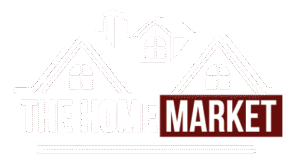Dreaming of homeownership in Calgary but worried your credit score might stand in the way? Purchasing a home in Calgary with bad credit presents challenges, but it doesn’t necessarily mean your homeownership dreams are impossible.
In Canada, credit scores range from 300 to 900, with scores below 560 generally considered bad credit. While most conventional mortgage lenders in Calgary look for a minimum credit score of 680, there are actually options for those with lower scores. For high-ratio mortgages, you might qualify with a score as low as 600. Despite these requirements, even if your score falls below 620, you could still receive a conventional loan if you can provide a larger down payment.
Throughout this guide, we’ll explore what’s considered a good credit score to buy a house, strategies for buying a house with bad credit, and practical approaches to improve your chances of mortgage approval in Calgary’s competitive housing market. Fortunately, with the right knowledge and preparation, homeownership remains attainable even with credit challenges.
What is considered bad credit when buying a home in Calgary?
Your credit score plays a crucial role when applying for a mortgage in Calgary’s housing market. Lenders use this three-digit number to determine your creditworthiness and whether you’re likely to repay your loan on time.
Understanding credit score ranges in Canada
In Canada, credit scores range from 300 to 900, with higher scores indicating better creditworthiness. This numerical representation helps lenders assess the risk of lending you money. According to Equifax, these scores fall into several categories:
- Poor: 300-559
- Fair: 560-659
- Good: 660-724
- Very Good: 725-759
- Excellent: 760-900
Most Canadians tend to have relatively strong credit. The Canada Mortgage and Housing Corporation reports that the average credit score for Canadians without a mortgage is 745, while those with mortgages average 766. Furthermore, nearly 90% of mortgages in 2023 were held by borrowers with credit scores of 700 and above.
What is a good credit score to buy a house?
For conventional mortgages in Calgary (those with a 20% or higher down payment), lenders typically require a minimum credit score of 680, though 720+ will secure the best interest rates. High-ratio insured mortgages (less than 20% down payment) generally require a minimum score of 600, but 680+ is needed for favorable rates.
The Government of Canada recommends maintaining a debt-to-credit ratio of 35% or below on credit cards, loans, and lines of credit. This ratio significantly impacts your overall creditworthiness in lenders’ eyes.
How bad credit affects mortgage eligibility
A credit score below 600 is typically considered bad credit in Canada. Consequently, most traditional banks and A-lenders won’t approve your mortgage application if your score falls below this threshold.
Bad credit signals potential financial management issues to lenders, making them hesitant to approve your application. Additionally, any late payments, especially those more than 30 days late in the past year, collections, judgments, or bankruptcies, serve as red flags regardless of your overall score.
Even if you secure mortgage approval with bad credit, you’ll face significantly higher interest rates, stricter terms, potentially larger down payment requirements, and possibly shorter loan terms. Over time, these higher rates translate into thousands of dollars in additional costs throughout your mortgage term.
Where to get a mortgage with bad credit in Calgary
When traditional banks reject your mortgage application due to credit issues, don’t lose hope. Calgary offers several pathways to homeownership for those with less-than-stellar credit histories.
Traditional lenders vs alternative lenders
Traditional lenders like major banks have stringent requirements, typically requiring credit scores of at least 680 for conventional mortgages. Alternatively, if you fail the mortgage stress test or have credit challenges, alternative lenders provide more flexible options. Unlike banks, many alternative lenders aren’t required to perform stress tests, making them accessible to borrowers with poor credit scores or fluctuating income.
Private mortgage lenders and B-lenders
B-lenders include trust companies and smaller financial institutions that cater to borrowers with credit scores below 700. These lenders assess your overall financial picture rather than focusing solely on credit scores. B-lender mortgages typically require at least 20% down payment and offer terms ranging from 1-3 years.
Private lenders, meanwhile, focus primarily on the property’s value rather than your credit history. They’ll generally lend up to 75% of a property’s value. However, this flexibility comes at a cost – private lenders charge higher interest rates (often 1-14% higher than bank rates) plus additional fees that can range from 1-2% of the mortgage amount.
How mortgage brokers can help
Mortgage brokers serve as invaluable intermediaries between borrowers and lenders. For those with credit challenges, a broker can:
- Shop your application to multiple lenders simultaneously
- Negotiate better rates through their volume discounts
- Find institutions specializing in bad credit situations
- Structure your mortgage to meet your specific needs
Most private lenders work exclusively through mortgage brokers, making them essential partners in your home-buying journey. Furthermore, a knowledgeable broker understands that a bad credit mortgage should be a temporary stepping stone, helping you transition to better rates once your credit improves.
What lenders look for beyond your credit score
Beyond your credit score, lenders examine several crucial factors before approving your mortgage application. These elements can sometimes outweigh credit concerns for borrowers in Calgary seeking homeownership despite credit challenges.
Income and employment verification
Lenders need solid proof of your ability to repay the mortgage. They typically request pay stubs, tax information slips, notices of assessment, or statements of income and deductions. For traditionally employed applicants, lenders verify employment directly with employers to confirm job stability. Self-employed individuals face additional scrutiny, often needing to provide at least two years of income tax returns. Notably, lenders prefer borrowers with steady employment histories and consistent income, as predictability reduces their perceived risk.
Debt-to-income ratio requirements
Your debt-to-income ratio critically influences mortgage approval decisions. In Canada, lenders evaluate two key ratios:
- Gross Debt Service (GDS): Your monthly housing costs shouldn’t exceed 39% of your gross household income. Housing costs include mortgage payments, property taxes, heating costs, and 50% of condo fees if applicable.
- Total Debt Service (TDS): Your total debt load, including housing costs plus all other debts, shouldn’t surpass 44% of your gross income. This encompasses credit card balances, car loans, lines of credit, and other obligations.
Down payment expectations for bad credit buyers
With poor credit, expect to provide substantially more upfront. Most B-lenders enforce a minimum 20% down payment requirement. During favorable market conditions, some private lenders might accept as little as 10% down, although this typically results in higher interest rates. Essentially, larger down payments demonstrate financial commitment and reduce lender risk, potentially offsetting credit concerns.
Property appraisal and loan-to-value ratio
The property itself serves as collateral, making its valuation crucial. Professional appraisers evaluate factors including condition, size, location, recent comparable sales, and renovations. This assessment establishes your loan-to-value (LTV) ratio—the percentage of the property’s appraised value that can be financed. For bad credit scenarios, lenders typically limit loans to 75-80% of the appraised value. A lower LTV ratio reduces lender risk, potentially leading to better interest rates and improved approval chances.
Ways to improve your chances of approval
If you’re facing mortgage rejection in Calgary, several proactive strategies can improve your approval odds. Let’s explore practical approaches that can transform your homebuying journey, even with credit challenges.
Saving for a larger down payment
A substantial down payment often serves as the most effective counterbalance to credit concerns. For borrowers with good credit, a minimum 5% down payment may suffice, but those with bad credit typically need 20-25%. This larger investment demonstrates financial responsibility and reduces lender risk. Private lenders frequently require a minimum of 25% down payment, whereas a 35% down payment might be necessary with a credit score as low as 500. Moreover, putting down 20% eliminates the need for mortgage loan insurance, saving you considerable money as insurance premiums range from 0.6% to 4.5% of your mortgage amount.
Using a co-signer to strengthen your application
A co-signer can substantially boost your mortgage application by sharing responsibility for the loan. This person guarantees payment if you default, effectively lending their creditworthiness to your application. Co-signers typically need strong income and good credit—ideally 660-900. Parents or close relatives frequently serve as co-signers, though this arrangement requires careful consideration as any missed payments affect both parties’ credit scores. Some alternative lenders might accept co-signers with less-than-perfect credit if they offer their property as collateral.
Considering rent-to-own programs
Rent-to-own programs provide an alternative pathway to homeownership for those currently unable to secure traditional financing. These arrangements allow you to rent a property with the option to purchase it later. In Calgary, companies like Alberta House Partners offer such programs specifically designed for people facing financial challenges. Typically, part of your monthly rent contributes toward your future down payment, and you can lock in the purchase price upfront. These programs often require an initial option fee ranging from 2-5% of the property’s value.
Fixing your credit before applying
Sometimes, the best strategy is improving your credit before applying. For minor issues, reducing credit card balances below 75% of your limit can boost your score within a month. Additionally, paying off collections and requesting their removal from your credit report can help. For long-term improvement, consider secured credit cards or easier-to-obtain retail credit cards, using them responsibly and paying them off monthly. Most importantly, avoid unnecessary credit pulls, as multiple inquiries can further damage your score.
Conclusion
Purchasing a home in Calgary with bad credit certainly presents challenges, though your homeownership dreams remain achievable with the right approach. Throughout this guide, we’ve explored multiple pathways available for credit-challenged buyers in Calgary’s housing market.
Credit scores below 600 will limit your options with traditional lenders, certainly. However, alternative lenders, B-lenders, and private mortgage providers offer viable solutions specifically designed for your situation. These institutions look beyond your credit score, considering factors like employment stability, income consistency, down payment size, and property value.
Your strongest strategy might involve saving for a larger down payment. A substantial down payment of 20-25% significantly improves your approval chances and potentially secures better interest rates. Additionally, enlisting a qualified co-signer, exploring rent-to-own programs, or taking time to repair your credit first provide alternative routes to homeownership.
Remember that bad credit mortgages should function as stepping stones rather than permanent solutions. Most homebuyers with credit challenges eventually refinance with traditional lenders after demonstrating payment reliability and improving their credit profiles.
Mortgage brokers become especially valuable allies during this journey. Their expertise helps match your specific situation with appropriate lenders while potentially securing better terms than you might find independently.
Despite current obstacles, homeownership remains within reach. The journey might take longer or require more preparation than for those with excellent credit, but thousands of Calgarians have successfully purchased homes despite previous credit challenges. Your path may differ from the conventional route, though with persistence, planning, and the right professional guidance, you can absolutely achieve your homeownership goals in Calgary’s vibrant housing market.
Check out our post about Calgary Real Estate Prices by clicking here!




